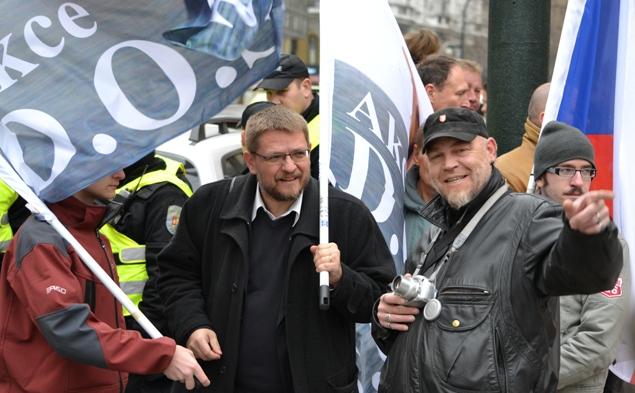Czech MPs pass over ultra-right party's candidate for Czech News Agency board in favor of Pirates' pick

In a secret ballot today, the final open place on the board of the Czech News Agency has been filled by former journalist Angelika Bazalová, who was nominated by the Pirate Party. The lower house preferred her over the candidate put forward by the “Freedom and Direct Democracy” movement (SPD), vice-chair of the “Akce D.O.S.T.” movement, Michal Semín.
The Pirates’ candidate was chosen by 131 MPs – 88 votes were necessary to be appointed; Semín got 33. The results were announced by the chair of the voting commission in the lower house, Martin Kolovratník (ANO).
During a prior round of voting, MPs chose the ANO candidate for the board of the public wire service, Prague 3 municipal assembly member David Soukup. That vote took place during the previous parliamentary session.
The lower house has now chosen members to replace former chair Miroslav Augustin (chosen for ANO) and Jakub Heikenwälder (chosen for the Christian Democrats – KDU-ČSL), whose five-year terms ended on 20 June. The vice-chair members of the board are currently Jaroslava Wenigerová (for the Civic Democratic Party – ODS) and the publicist Petr Žantovský (for ANO).
Other members in addition to Bazalová and Soukup are Pavel Foltán (for ANO), Jana Gáborová (for the SPD) and, from the beginning of May, former Labor Minister Michaela Marksová (Czech Social Democratic Party – ČSSD). “I am glad that MPs from across the political spectrum have ultimately agreed on me, the opposition party’s candidate, that the ice has been literally broken, and although nobody anticipated it to begin with, the Czech News Agency board is finally fully staffed,” Bazalová stated in a press release.
“My task will be to supervise the public mission of the wire service and to tend to its independence and professionalism. I believe I will be aided in that not just by my more than 20 years of experience working in the media, but paradoxically also perhaps by the detachment that I have acquired thanks to not focusing on journalism professionally for the last couple of years,” the press release said.
The choice of the board’s new chair is not yet on the program for its upcoming meeting on 21 October, according to vice-chair Wenigerová. “Nobody has announced it,” she said when asked by the Czech News Agency today whether it would be on the agenda.
Bazalová began her journalism career in 1992 as a regional reporter at the Ostrava regional desk of public broadcaster Czech Television, where she also worked as an editor and moderator until 1996; in 1998, she won a selection procedure to become a reporter with the Czech-language desk of the BBC in Prague. She stopped working at the BBC in 2001 and moved to Czech Television in Prague, where she began as a news editor.
Later she became the main editor of the evening news broadcast “Událostí” (“Happenings”) and several years later she took over the leadership of the editorial desk for the early and late morning broadcasts of the online news channel ČT24. Before leaving the public broadcaster she also worked as Editor-in-Chief of the newly-established New Media desk.
Her fellow candidates Semín and Soukup had already competed against each other (in a secret ballot that chose nobody) prior to the round in which Soukup was eventually chosen. Semín’s candidacy sparked attention and relationships in the governing coalition between the ANO movement and the ČSSD became worse as a consequence.
The ČSSD said Semín would be an unacceptable choice for them. The effort to elect him to the board of the wire service was criticized by the Federation of Jewish Communities, who said that he had made statements against Judaism.
Semín responded to the criticism by saying that he is critical of Judaism from a “theological perspective”, but that he is a devotee of religious tolerance. The seven-member board of the Czech News Agency is the body through which the public exercises its right of control over this public media service.
The board’s activities include, for example, appointing and dismissing the General Director and approving of the wire service’s budget. The service was first established in 1918 as the press agency of the Czechoslovak state.
Since 1993 and the declaration of an independent Czech Republic, the wire service has been a public institution that is not connected to the state either in terms of assets and copyrights or in terms of its economic management. The service is not funded by any public money, does not receive concessionary fees (unlike Czech Radio and Czech Television), and covers all of its costs from its own commercial activity.
